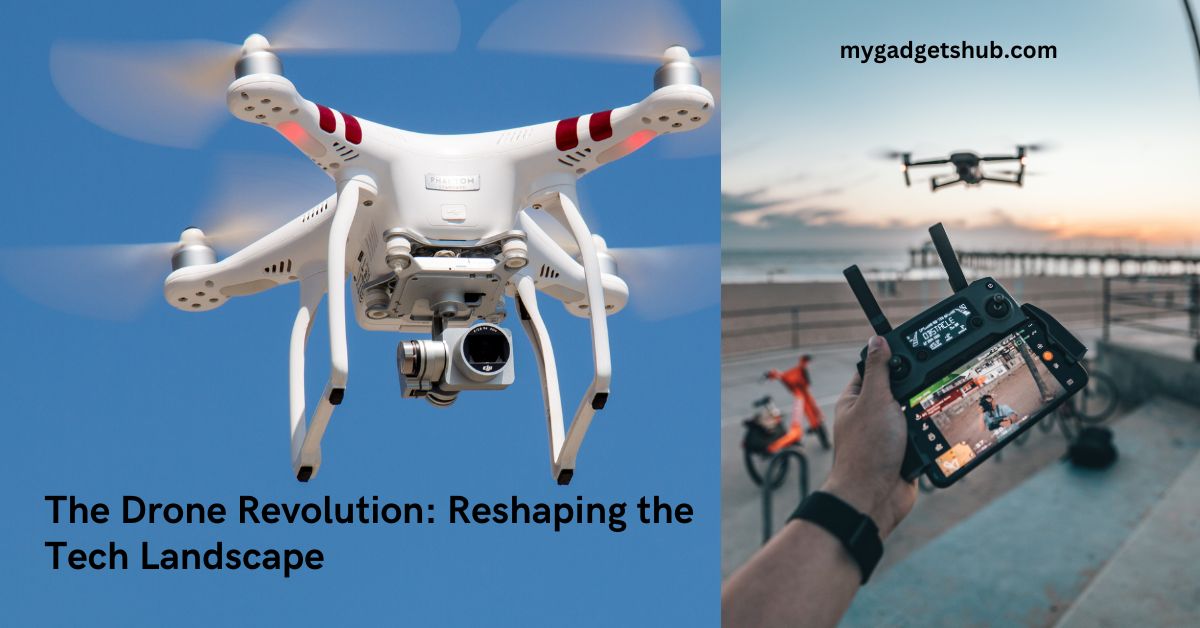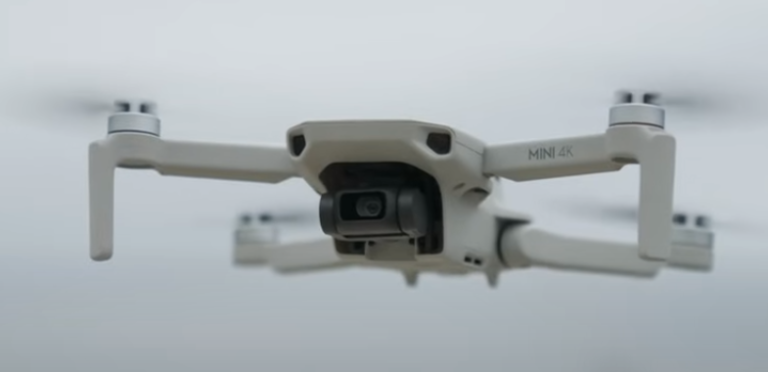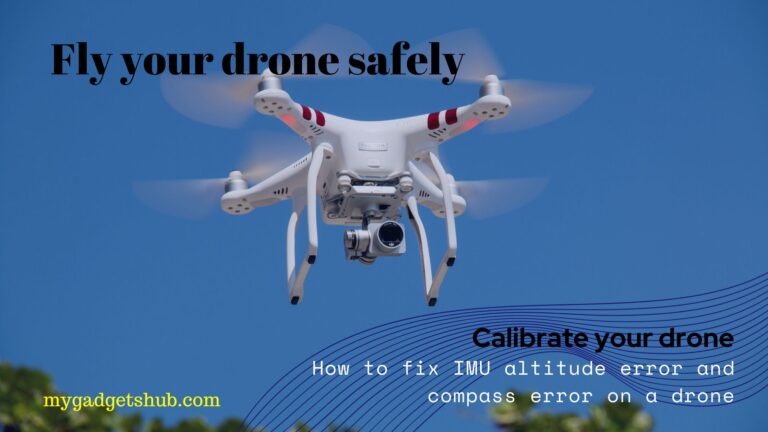The Drone Industry: A Catalyst for Tech Startup Innovation
The drone industry has witnessed a meteoric rise in recent years, driven by technological advancements, decreasing costs, and a wide range of potential applications. From aerial photography and videography to package delivery and agriculture, drones are revolutionizing various sectors. This rapid growth presents a significant opportunity for tech startups to innovate and disrupt traditional industries.
Thesis Statement: The drone industry will significantly impact the future of tech startups, creating new opportunities and challenges.
Key Opportunities for Tech Startups:
- Hardware and Software Development: Tech startups can innovate in drone hardware, such as designing more efficient motors, batteries, and payloads. Additionally, they can develop advanced software solutions for drone navigation, automation, and data analysis.
- Data Analytics and Artificial Intelligence: Drones collect vast amounts of data, which can be analyzed using AI techniques to extract valuable insights. Startups can develop AI-powered solutions for tasks like object detection, image recognition, and predictive analytics.
- Vertical Applications: Startups can focus on developing drone applications for specific industries, such as agriculture, logistics, construction, and surveillance. These vertical applications can address unique challenges and provide tailored solutions.
- Drone Traffic Management Systems: As the number of drones increases, efficient traffic management becomes crucial. Startups can develop software and hardware solutions to ensure safe and orderly drone operations.
- Drone Delivery and Logistics: The potential for drone-based delivery services is immense. Startups can explore innovative models for last-mile delivery, package optimization, and integration with existing logistics networks.
Challenges for Tech Startups:
- Regulatory Hurdles: The drone industry is subject to various regulations, which can pose challenges for startups. Navigating complex regulatory frameworks and obtaining necessary permits can be time-consuming and costly.
- Safety and Privacy Concerns: Ensuring the safety of drones and protecting privacy are critical issues. Startups must develop robust safety measures and address privacy concerns to gain public trust.
- Competition: The drone industry is becoming increasingly competitive, with established players and numerous startups entering the market. Startups need to differentiate themselves and develop a strong competitive advantage.
- Infrastructure and Technology Limitations: The widespread adoption of drones may require infrastructure improvements, such as charging stations and communication networks. Additionally, advancements in battery technology and drone autonomy are essential for realizing the full potential of the industry.
1. Emerging Applications of Drones
Beyond photography and videography, drones are finding innovative applications across various industries. For instance, in agriculture, drones are used for crop monitoring, pest control, and precision farming. Startups like PrecisionHawk and DroneDeploy are using drones to collect data on crop health, identify disease outbreaks, and optimize fertilizer application.
In infrastructure inspection, drones are replacing traditional methods to inspect bridges, power lines, and pipelines. Startups like Skycatch and DroneSense offer drone-based inspection services, providing more efficient and safer inspections compared to manual methods.
In the realm of delivery, drones are being explored for last-mile delivery of packages and goods. Companies like Amazon Prime Air and Zipline are conducting trials for drone delivery, with the potential to revolutionize the logistics industry.
For search and rescue operations, drones are proving to be invaluable tools. They can be deployed quickly to survey disaster areas, locate survivors, and assist in rescue efforts. Startups like First Responder Group and Skydio are developing drones specifically designed for search and rescue missions.
2. Technological Advancements Driving the Drone Industry
Several technological advancements are fueling the growth of the drone industry:
- Battery technology: Advances in battery technology are enabling drones to fly for longer durations and carry heavier payloads. Startups like Kratos Defense & Security Solutions are developing high-energy-density batteries for drones.
- AI and machine learning: AI and machine learning algorithms are being used to improve drone autonomy, navigation, and data analysis. Startups like Iris Automation are developing AI-powered collision avoidance systems for drones.
- Sensors and data analytics: Drones are equipped with a variety of sensors, including cameras, LiDAR, and thermal imaging, to collect data. Startups like Measure are developing advanced data analytics platforms to extract valuable insights from drone data.
- Regulations and standards: The development of clear regulations and standards is crucial for the safe and responsible operation of drones. Organizations like the Federal Aviation Administration (FAA) and the International Civil Aviation Organization (ICAO) are working to establish guidelines for drone operations.
3. The Impact of Drones on Tech Startups
The drone industry presents significant opportunities for tech startups:
- New Market Opportunities: Startups can explore various market segments, such as agriculture, infrastructure inspection, delivery, and entertainment.
- Challenges and Risks: Startups may face challenges like regulatory hurdles, technological limitations, and competition from established players.
- Investment and Funding: The drone industry has attracted significant investment. Startups can seek funding from venture capital firms, angel investors, and government grants.
4. Case Studies of Successful Drone Startups
- DJI: DJI is a leading drone manufacturer known for its consumer and commercial drones. Their innovative technology and strong market presence have contributed to their success.
- Matternet: Matternet specializes in drone-based logistics solutions. They have partnered with healthcare organizations to deliver medical supplies and blood samples.
- Zipline: Zipline is a drone delivery company that has successfully implemented drone-based delivery systems in Rwanda and Ghana.
5. The Future of the Drone Industry and Tech Startups
The drone industry is poised for continued growth, driven by technological advancements and increasing adoption across various sectors. Potential trends include:
- Increased autonomy: Drones will become more autonomous, capable of navigating complex environments and making decisions without human intervention.
- Integration with other technologies: Drones will be integrated with other technologies, such as the Internet of Things (IoT) and 5G networks.
- New applications: The drone industry will continue to explore new applications, such as environmental monitoring, disaster response, and law enforcement.
Conclusion
The drone industry is a rapidly evolving field with significant potential for tech startups. By leveraging technological advancements and addressing the challenges, startups can play a crucial role in shaping the future of this innovative industry. As drones become more integrated into our daily lives, their impact on society and the economy will continue to grow.



